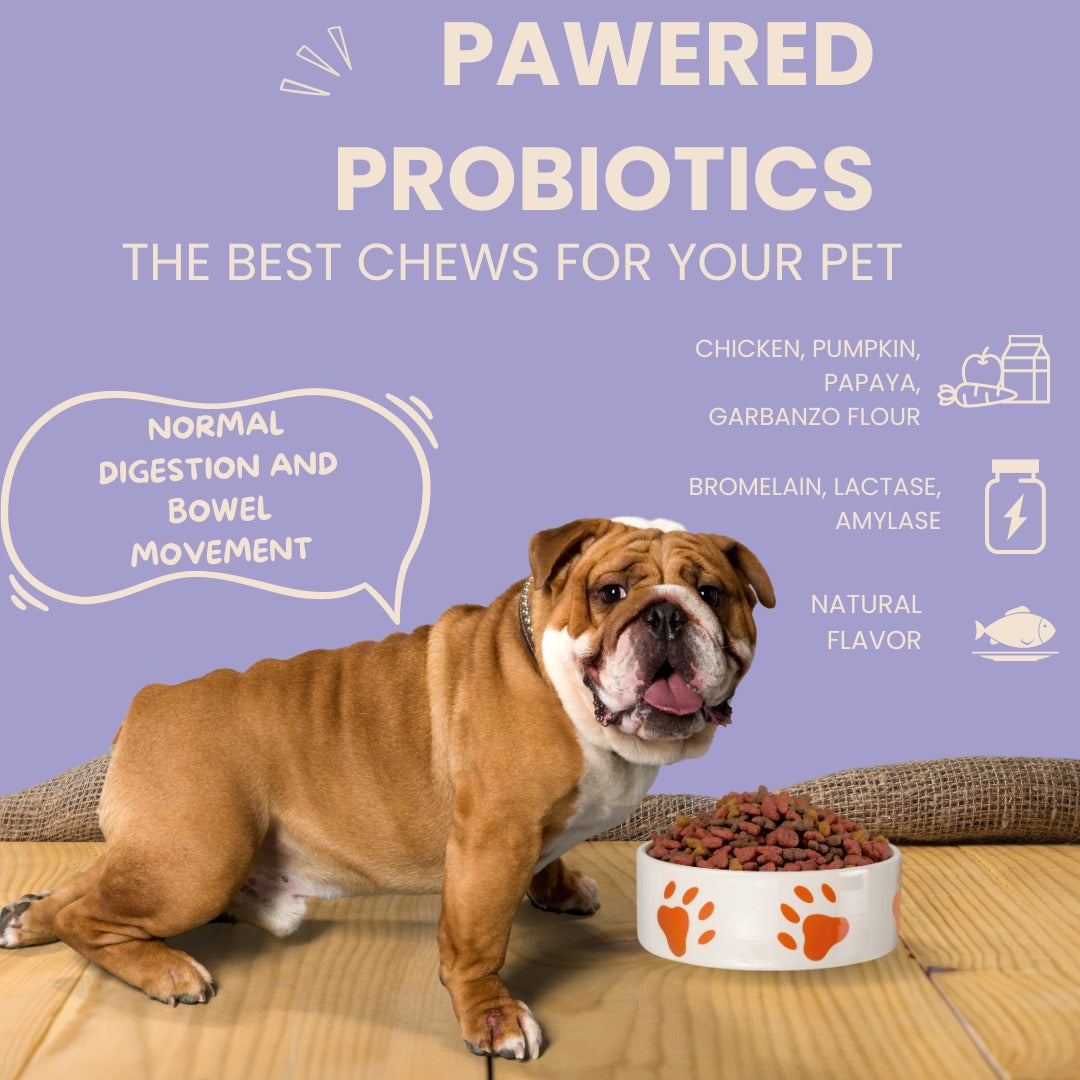
Why may my dog benefit from probiotics?
Dogs, like humans, have a complex community of microorganisms living in their digestive tract that play an important role in overall health and well-being. These microorganisms, collectively known as the gut microbiome, help to break down food, produce important vitamins and nutrients, and support immune function.
Probiotics are beneficial bacteria that can be added to a dog's diet to help support a healthy gut microbiome. When given in the right amounts, probiotics can help to restore balance to the gut microbiome, which may have been disrupted by factors such as a poor diet, stress, illness, or medication use.
Some of the potential benefits of probiotics for dogs include:
- Improved digestion and nutrient absorption
- Reduced inflammation and allergy symptoms.
- Enhanced immune function.
- Reduced risk of gastrointestinal infections
- Improved skin and coat health
- Better overall health and well-being
It's important to note that not all dogs will need probiotics, and some dogs may not tolerate probiotics well. Always consult with your veterinarian before giving your dog any supplements, including probiotics, to ensure that they are safe and appropriate for your dog's individual needs.
How to administer them properly when needed?
Administering probiotics to dogs is a simple process that can help promote good gut health and support your pet's overall health and well-being. Here are some steps to follow when giving your dog probiotics:
- Choose a high-quality probiotic supplement specifically designed for dogs. You can find these supplements at pet stores, online, or through your veterinarian.
- Check with your veterinarian to determine the appropriate dosage for your dog based on their weight and overall health.
- Mix the probiotic powder or liquid into your dog's food. This is usually the easiest way to give your dog a probiotic supplement. You can also give probiotic supplements to your dog directly by placing them in their mouth or mixing them with a small amount of water and using a syringe to administer the mixture.
- Make sure your dog has access to fresh, clean water at all times when taking probiotics. This will help ensure that the probiotics are able to do their job properly.
- Follow the recommended dosage and administration instructions carefully. It's important not to give your dog too much probiotics as this can cause digestive upset or other adverse effects.
- Monitor your dog for any changes in their behavior, appetite, or bowel movements after starting them on probiotics. If you notice any adverse effects, contact your veterinarian right away.
Remember that probiotics are not a replacement for veterinary care, and you should always consult with your veterinarian before giving your dog any supplements or making any changes to their diet or healthcare regimen.

